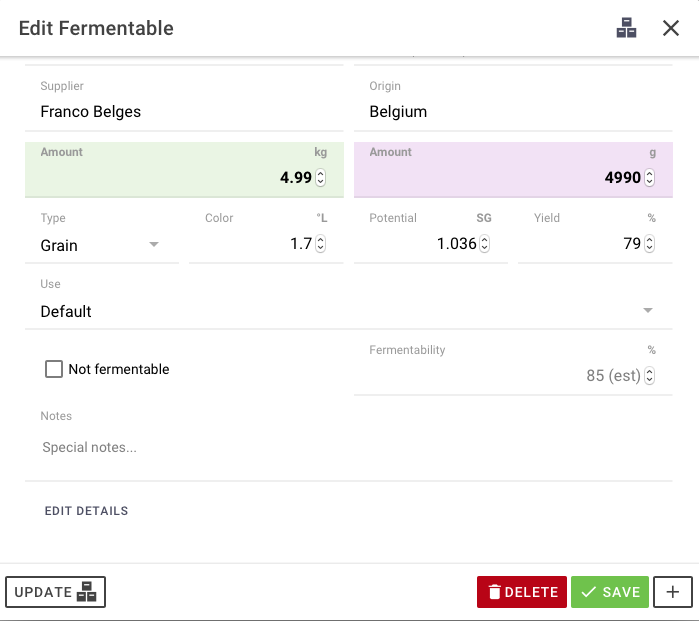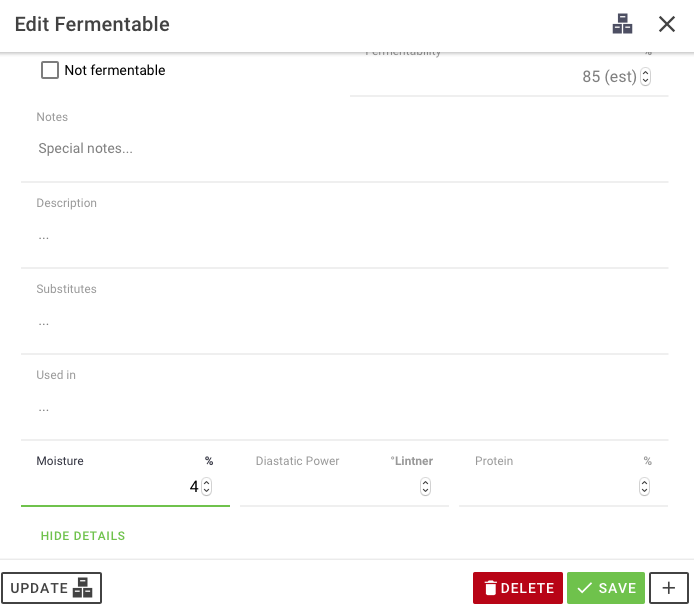Hey guys, small batch biab brewer here. Just started to use Brewfather, the UI/UX is great compared to beer Smith.
Just a quick question regarding water amount
my aim is to have 5.5 litres in kettle after boil. I brew a little bit extra to account for losses like trub. With my boil off rate of 2.4 litres in Brewfather it says I need 7.9 litres of water at the start of the brew. This all seems straight forward.
when I go to my first recipe created, an Irish red, and scroll down to the water Section It says the water amount is 8.4Litres, This looks like the .5L/kg grain absorbtion rate in my profile being added to my 7.9liters of water.
So my question is should I start off with 8.4 litres of water in my kettle? Or 7.9.
On a side note I noticed when creating an equipment profile it says pre boil and post boil volumes are hot including 4% expansion. So let’s say my pre boil volume is 8.4 litres which is measured hot in brewfather with 4% expansion. When I’m filling my kettle with cold water shud I account for the 4% expansion, should I be using 8.064 litres of cold water which when heated will be 8.4 litres.
just trying to really nail down my water amounts
Just a quick question regarding water amount
my aim is to have 5.5 litres in kettle after boil. I brew a little bit extra to account for losses like trub. With my boil off rate of 2.4 litres in Brewfather it says I need 7.9 litres of water at the start of the brew. This all seems straight forward.
when I go to my first recipe created, an Irish red, and scroll down to the water Section It says the water amount is 8.4Litres, This looks like the .5L/kg grain absorbtion rate in my profile being added to my 7.9liters of water.
So my question is should I start off with 8.4 litres of water in my kettle? Or 7.9.
On a side note I noticed when creating an equipment profile it says pre boil and post boil volumes are hot including 4% expansion. So let’s say my pre boil volume is 8.4 litres which is measured hot in brewfather with 4% expansion. When I’m filling my kettle with cold water shud I account for the 4% expansion, should I be using 8.064 litres of cold water which when heated will be 8.4 litres.
just trying to really nail down my water amounts













































![Craft A Brew - Safale S-04 Dry Yeast - Fermentis - English Ale Dry Yeast - For English and American Ales and Hard Apple Ciders - Ingredients for Home Brewing - Beer Making Supplies - [1 Pack]](https://m.media-amazon.com/images/I/41fVGNh6JfL._SL500_.jpg)



















